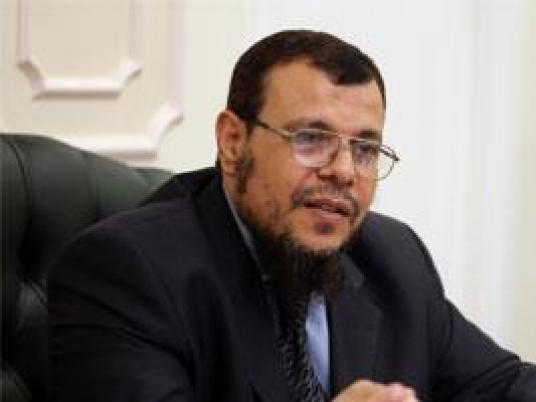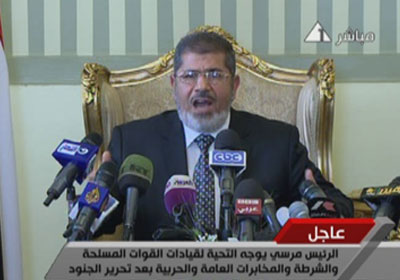
On Sunday, President Mohamed Morsy dismissed Khaled Alam Eddin, his environmental affairs adviser and a member of the Salafi Nour Party, after receiving a report that said Alam Eddin attempted to exploit his position, according to Al Jazeera Mubasher Misr.
But Alam Eddin said in a press conference on Monday that the reason behind his dismissal was that he was critical to the Muslim Brotherhood.
On Monday, MENA reported that Bassam al-Zarqa, another Nour Party member, resigned also from the presidential team.
Alam Eddin and Zarqa are the latest in a series of resignations or dismissals from the presidential team, casting deep doubts over the policies of the Muslim Brotherhood in general.
Look back
Following heated debate and speculations about the team, Morsy reneged on an earlier promise to have a woman or a Copt as vice president. Instead, Morsy appointed 23 people in August 2012 to the presidential team, along with Mahmoud Mekky as his vice president.
At that time, Presidential Spokesperson Yasser Ali said that Morsy's appointees represented the wide swath of the political spectrum. Ali himself is no longer the spokesperson, having stepped down last week.
But following Morsy's constitutional declaration in November 2012 in which he has granted himself far-reaching powers and immunity from legal oversight different members of the presidential team resigned in protest to the move. Samir Morcos, who acted as the president assistant for democratic transition and was one of two Copts on the team, was the first aide to resign in protest of the declaration. Rafiq Habib, the other Coptic member of the team, resigned for the same reason as well.
Other members who resigned in protest to Morsy 's Declaration include:
Amr al-Leithy, well-known journalist and TV host.
Ayman al-Sayyad, independent journalist.
Farouq Goweida, veteran journalist and poet.
Mohamed Seif al-Dawla, a Nasserist-leaning political activists and researcher.
Sekina Fouad, independent and well-known journalist.
Seif al-Din Abdul Fatah, a political science professor, who initially defended the declaration but later resigned after clashes erupted in front of the presidential palace between Muslim Brotherhood members and opposition protesters staging a sit-in.
Mahmoud Mekky resigned in December after the newly-approved Constitution did not stipulate a vice presidential post.
Alam Eddin is not the only Islamist who has resigned. Essam El-Erian, the once acting chairman of the FJP and now the majority leader of the Shura Council requested resignation from his post following his loss in the FJP elections in October 2012.
Only one member of the Nour Party is still in the team social communications consultant Emad Abdel-Ghafour, but he has since left the party to lead the Watan Party.
The other remaining team members are:
Ahmed Omran: the president's assistant for social development is a senior leader at Jamaa Islamiya.
Ayman Ahmed Ali, a physician and member of the Muslim Brotherhood.
Emad Hussein Abdallah: Security adviser and former Police Academy chief. He is an independent.
Essam el-Haddad, the president's assistant for foreign relations and member of the Muslim Brotherhood.
Hussein al-Qazzaz: A Muslim Brotherhood leader whose position was not accurately named, but he was the president’s economic adviser during his electoral campaign.
Mohei Hamid, member of the Muslim Brotherhood's guidance bureau.
Mohamed Fouad Gadallah: legal affairs adviser, the first to be appointed among presidential advisers. He is independent.
Omaima Kamel, female member of the Muslim Brotherhood.
Pakinam El-Sharkawi, the president's assistant for political issues.
Selim El-Awa, former presidential candidate who got around 250,000 votes in the presidential elections.
Yahia Hamed: The Brotherhood leader was the president’s former adviser for executive affairs.

